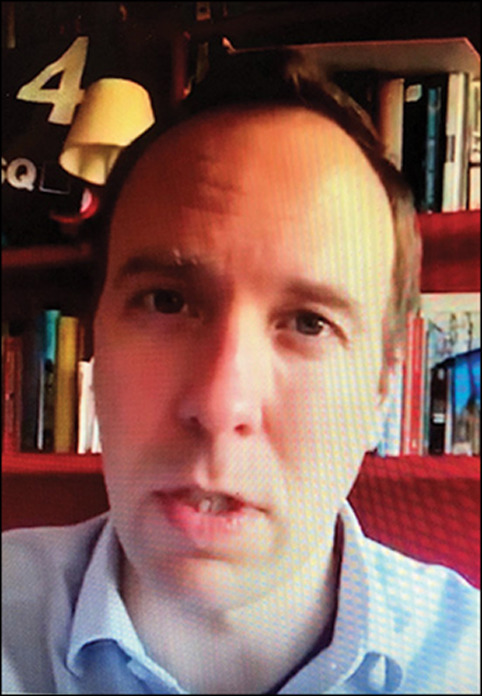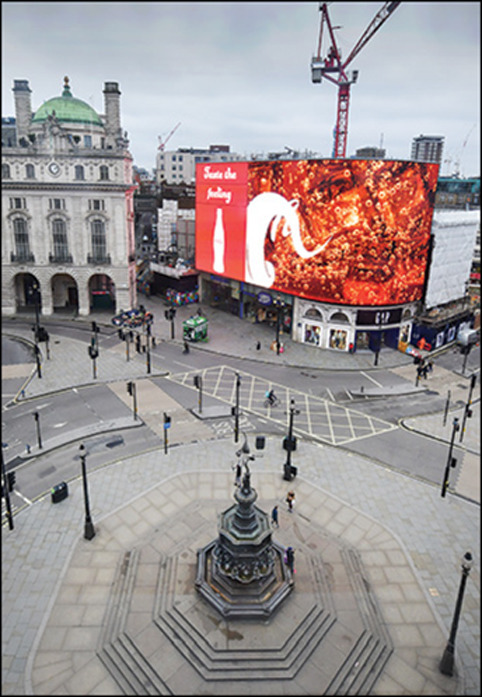How should countries plan for the approaching health crisis caused by coronavirus disease 2019 (COVID-19)? In the UK, Prime Minister Boris Johnson, himself struck down with infection, has written to every household warning that, “we know things will get worse before they get better”. The UK Government is right to prepare the public for the coming human catastrophe. All governments have a responsibility to do the same. But this advice does not go far enough. Here are five critical actions that need to be considered immediately.

© 2020 Sara Phillips, taken from BBC news
First, coordination of the UK's national response to COVID-19 must be revised. There has been an astonishingly haphazard approach to the management of this crisis. The public has seen multiple figures seeming to assume responsibility—the Prime Minister, his Secretary of State for Health and Social Care, the Chief Medical Officer and his deputies, a Chief Scientific Adviser, the Chief Executive Officer of NHS England and his National Medical Director, and the Scientific Advisory Group for Emergencies. From the beginning, a COVID-19 National Emergency Action Group should have been established, with a visible leader and team that had the authority to integrate scientific advice into national policy. With the Prime Minster, his Health Secretary, and Chief Medical Officer now suffering diminished capacity, it is even more urgent that such a crisis action team is created. Second, the NHS must be better prepared. I am still receiving messages of despair from the front lines of the NHS response. Here is one doctor's story—“One of the worst things I have felt over the last few weeks is a powerless sinking sense of disbelief…Over the last month I have been dismissed or chastised by colleagues for taking precautions (using personal protective equipment [PPE]) with/for patients, I have seen unnecessary risks being taken, I have seen matrons remove PPE from wards, ward clerks telling doctors that it is not necessary to wear aprons, nurses with serious chronic diseases coming to work in fear of being told that they cannot stay at home, and scores of patients on wards developing possible viral infections after being admitted for other reasons. I haven’t seen infection control, only confusion control. I have lost faith in leadership. I am angry. There is no urgency. There is no response.” Third, palliative care services must be scaled up. The only certainty is that deaths will accumulate. Palliative care's goal is to alleviate serious health-related suffering. That suffering will take place in the coming weeks in the community as well as the hospital. The Lancet's 2018 Commission on Palliative Care and Pain Relief defined an essential package of palliative care services that can be provided at all levels of the health system, in all countries, and by multiple categories of health workers. Those services, together with the people needed to deliver those services, need to be identified urgently. Fourth, although the most difficult phase of this epidemic will be the rapid increase in mortality, a more dangerous period will follow. During this post-peak interval, the public will understandably wish to return to some semblance of normal life. Deep economic damage will be a powerful motivation to lift restrictions to personal freedoms. But to do so too early will lead inevitably to a second peak. This challenge is perilous, especially as summer approaches in the northern hemisphere. Yet it will be at this point that lockdown must be firmly maintained. The UK Government should begin preparing the public for this phase of the epidemic. Finally, planning must start for a national dialogue on the future of UK society. Hope is needed to bring the public through this frightful time. COVID-19 is a human tragedy. But it is also an opportunity to ask what kind of society we wish for after the pandemic has receded. It is not too soon, indeed it is essential, to think about our common future.

© 2020 Sara Phillips, taken from BBC news

© 2020 Oversnap
“Natural hazards are inevitable; the disaster is not”, concludes seismologist Lucy Jones in her book The Big Ones: How Natural Disasters Have Shaped Humanity (2018). Although many people will search for meaning in the current pandemic crisis, the cold truth is that there is no meaning in what is, simply, a terrifyingly random event. The best we can do is to use this calamity to create the conditions for better and more secure lives and societies. That moment is now.

© 2020 Sean Gladwell


